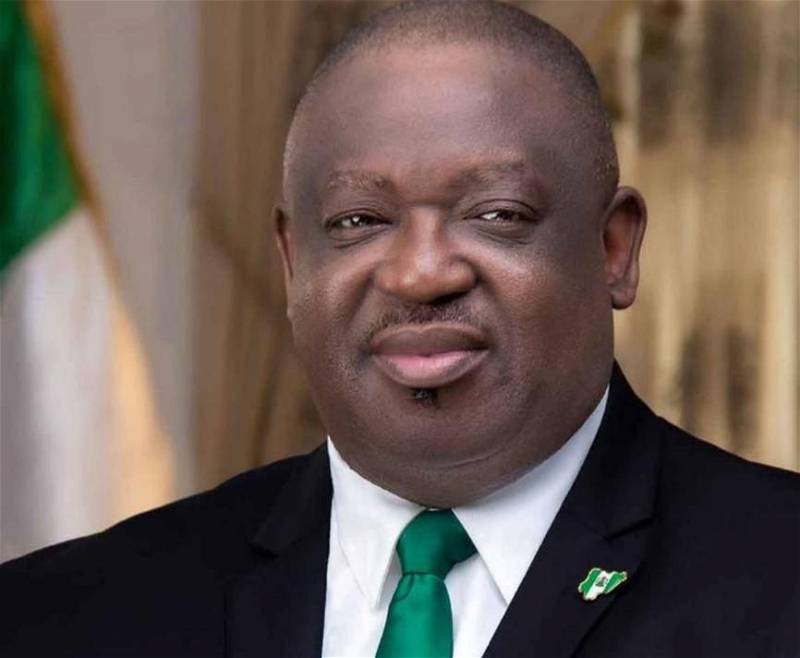 On October 1 1960, Sir Tafawa Balewa stood in the square in Lagos which now bears his name and declared ‘history will show that the building of our nation proceeded at the wisest pace: it has been thorough, and Nigeria now stands well built upon firm foundations’. He could not have been more wrong.
On October 1 1960, Sir Tafawa Balewa stood in the square in Lagos which now bears his name and declared ‘history will show that the building of our nation proceeded at the wisest pace: it has been thorough, and Nigeria now stands well built upon firm foundations’. He could not have been more wrong.
Can a good tree yield bad fruit?
Nigeria Today is the fruit from the tree called Nigeria’s Past and that tree is diseased and cannot yield good fruit unless we graft what is best about the tree we have with a better, stronger tree.
When I first thought about the allegory of the tree and the fruit in relation to Nigeria’s past and our present about a month ago when I started reading about the history of politics in Nigeria, I had no idea that a verse in the Bible says categorically that the answer to the question above is ‘no’. And while I had a sense that to understand where we are today and why lay in an excavation of our past, I had no idea that what I would uncover would make it clear as Clingfilm that our continued romanticization of the past and its protagonists is preventing us from the type of diagnosis that will result in the change we say we want.
After Presidents Obasanjo and Babangida’s joint statement two weeks ago about the state of the nation and suggestions on how to move forward, one is reminded that, “those who cannot remember the past are condemned to repeat it”. (George Santayana 1863-1952)
The problems we face today in our polity are a direct result of the foundation laid in the past. We are caught in a vicious cycle as people discuss constitutional reforms and yearn for the days of ‘strong autonomous regions’ and a decentralized federal government. But there is little public discussion about the reasons we moved away from that system in the first place. Falola and Heaton sum it up best in ‘A History of Nigeria’ when they said, “official corruption, rigged elections, ethnic baiting, bullying and thuggery dominated the conduct of politics in the First republic which existed from 1960 to 1966”.
Sounds much like 1999 to 2012, or 1979 to 1983.
Four key evils from the past are still with us today. The root of our inability to forge a national identity and our obsession with ethnic differences stems from pre-independence politics. From the National Youth Movement which started as the Lagos Youth Movement and then became the basis for Egbe Omo Oduduwa, to the Bauchi General Improvement Union which became the Northern People’s Congress and the Ibo Federal Union which morphed into Igbo State Union and finally became one of the largest groups of the National Council of Nigerian Citizens; the basis of our politics was ethnicity and an irrational fear of culture contamination or domination by other groups. It is from this foundation that we have quotas, federal characterand zoning. Some, like Usman and Abba in ‘The Misrepresentation of Nigeria: Facts and Figures’ would disagree with the idea that Nigerian politics is ethnic based but their arguments, based on electoral results from rigged elections, will be addressed in future installments.
/////////////////////////////////////////////////////
“In Nigeria, some would rather we believe that the past was glorious and the future can never again be as bright. Falola and Heaton sum it up best in ‘A History of Nigeria’ when they said, “official corruption, rigged elections, ethnic baiting, bullying and thuggery dominated the conduct of politics in the First republic which existed from 1960 to 1966”.
////////////////////////////////////////////////////
Even in the 1960s those in office had no respect for local governments – the place where suddenly, Babangida and Obasanjo say the country should focus on. Local governments in Western Nigeria under Akintola were placed under management committees for precisely the same reason they are under caretaker committees today, to subvert democracy and plunder resources. Yet the drafters of subsequent constitutions failed to provide safeguards against this.
The complicity of courts in did not start with the interference of the military or with the return to democracy in 1999. The Supreme Court judgment nullifying the removal of Akintola by the Governor of the Western Region against the lone dissenting opinion of Sir Lionel Brett is another example of a judgment which all too clearly favoured the ruling parties. On appeal, the Privy Council in London, upheld Brett’s interpretation but Akintola’s Western House of Assembly swiftly and conveniently passed a law abolishing appeals going beyond the Supreme Court.
Allegations of manipulation of the census and rigging of elections has dogged every election since 1959 and the tricks of the politicians have been passed on…indeed, most of the politicians or actors since then, are still active today. Yet, our electoral regulations, processes and enforcement remain deliberately weak to ensure that the rigging of elections continues.
It would not be out of place,knowing what we know about our past and what we know about our present, to reject the further involvement and interference of the same group of people who nurtured our past. So when in his response to the Obasanjo and Babangida’s state of the Nation, Alhaji Joda says “This country must look forward to the positive contributions of all our past leaders and all those who have held high public office. The debate about our future cannot be left in the hands of only those who now hold public office”, how comfortable should we feel? No one is completely good or bad and yes there are positives dotting the black tapestry these past non-leaders have woven for us, but until there is an admission of guilt, an acknowledgement of complicity and involvement in the rot, we should be wary of them. Because it is only from their admitted mistakes that we can learn anything…if they continue to insist everything they did was right, then there is nothing new. For those no longer with us to admit guilt, it is only fair to assume, they did their best, but they did not set the required standard and it is up to us, now, to set better standards for ourselves.
In Nigeria, some would rather we believe that the past was glorious and the future can never again be as bright. We need to think about the saying: “the fruit does not fall far from the tree” and stop our wild embrace of our past not as a way to learn and improve on, but as a haloed standard we can never live up to. The only thing glorious about our past is that there were fewer people looting the country then than there are now.
*The next installment of the fruit and the tree will focus on ethnic based politics pre independence – 1966. Reference material for this article includes: ‘People, Politics and Politicians of Nigeria (1940-1979)’ by Bola Ige, ‘A History of Nigeria’ by Falola & Heaton, ‘The Misrepresentation of Nigeria’ by Usman & Abba and ‘Constitutional Development in Nigeria from 1960 to date’ by Peter Cranny



